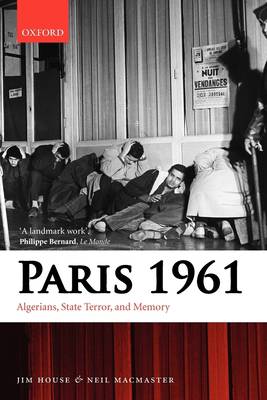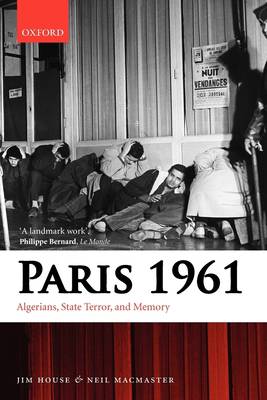
- Afhalen na 1 uur in een winkel met voorraad
- Gratis thuislevering in België vanaf € 30
- Ruim aanbod met 7 miljoen producten
- Afhalen na 1 uur in een winkel met voorraad
- Gratis thuislevering in België vanaf € 30
- Ruim aanbod met 7 miljoen producten
Zoeken
€ 91,95
+ 183 punten
Uitvoering
Omschrijving
The massacre of Algerian demonstrators by the Paris police on the night of 17 October 1961 is one of the most contested events in contemporary French history. This book provides a multi-layered investigation of the repression through a critical examination of newly opened archives, oral sources, the press and contemporary political movements and debates. The roots of violence are traced back to counter-insurgency techniques developed by the French military in North Africa and introduced into Paris to crush the independence movement among Algerian migrant workers. The study shows how and why this event was rapidly expunged from public visibility in France, but was kept alive by immigrant and militant minorities, to resurface in a dramatic form after the 1980s. Through this case-study the authors explore both the dynamics of state terror as well as the complex memorial processes by which these events continue to inform and shape post-colonial society.
Specificaties
Betrokkenen
- Auteur(s):
- Uitgeverij:
Inhoud
- Aantal bladzijden:
- 392
- Taal:
- Engels
Eigenschappen
- Productcode (EAN):
- 9780199556656
- Verschijningsdatum:
- 15/04/2009
- Uitvoering:
- Paperback
- Formaat:
- Trade paperback (VS)
- Afmetingen:
- 155 mm x 231 mm
- Gewicht:
- 576 g

Alleen bij Standaard Boekhandel
+ 183 punten op je klantenkaart van Standaard Boekhandel
Beoordelingen
We publiceren alleen reviews die voldoen aan de voorwaarden voor reviews. Bekijk onze voorwaarden voor reviews.








